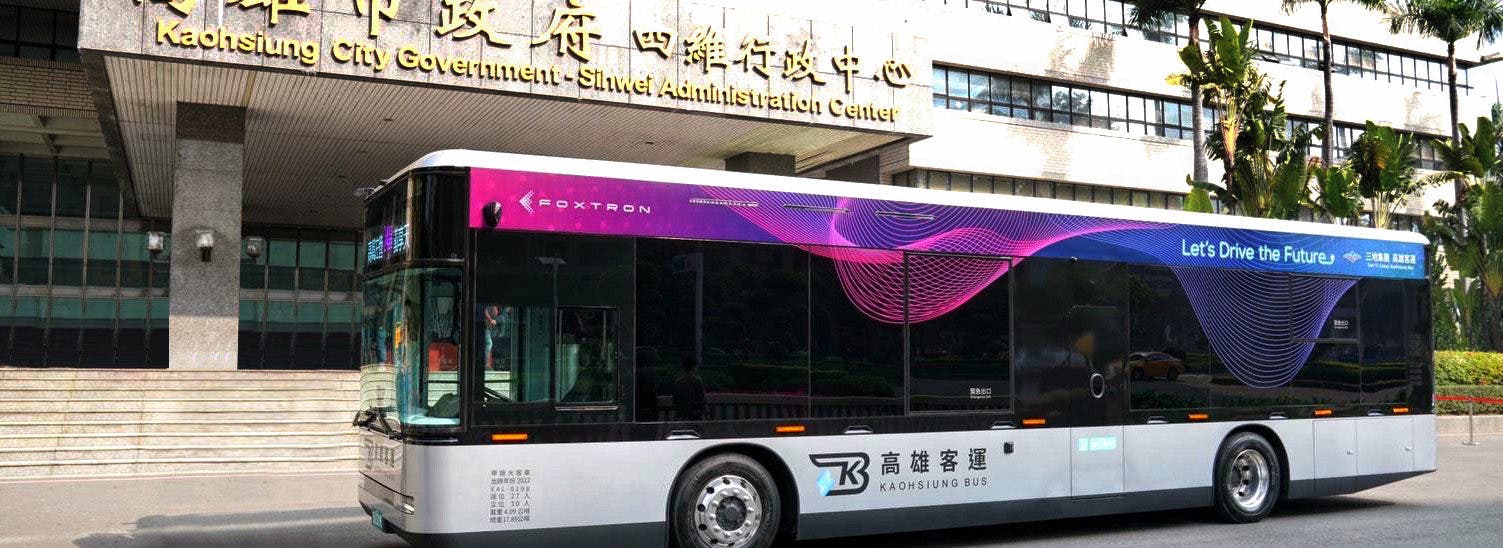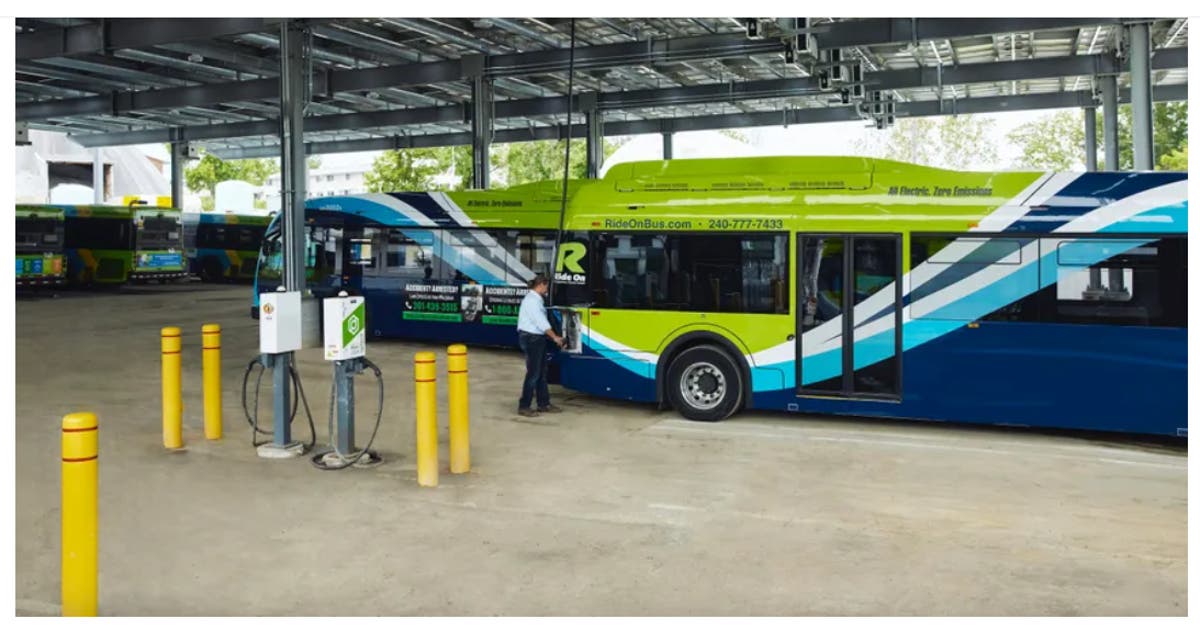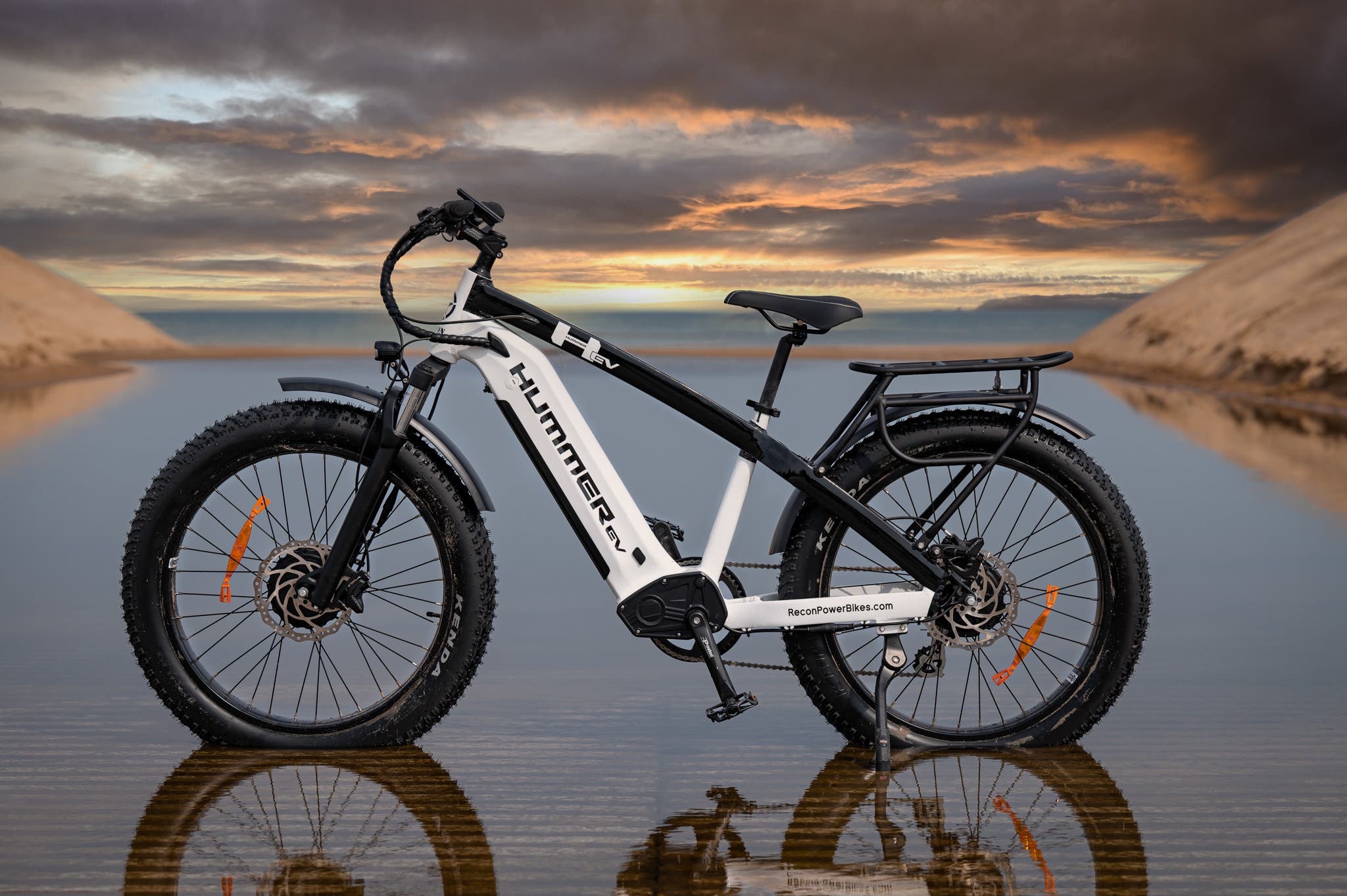There is currently a ton of negative news about Taiwan if you use a news search engine like Google News. As of the time of this writing, Taiwan is dealing with armed hostility from the mainland as a result of Speaker of the US House of Representatives Nancy Pelosi’s arrival. The news is dominated by military drills, threats, and even missiles flying over Taiwan’s capital city. However, we recently learned some encouraging cleantech news from Kaohsiung, a city on the southern tip of the nation’s main island.
According to a news release, the sales of electric vehicles are rising quickly across the globe. The Kaohsiung City Government partnered with Hon Hai Technology Group (also known as Foxconn) to address a number of issues, including smart electric bus development and smart city development, with the aim of becoming a test field that provides comprehensive business and service models to entice foreign manufacturers to invest in Kaohsiung and establish a full industrial supply chain for the EV sector. This partnership was made in order to establish Kaohsiung as a key base for the global EV industry.
This is a narrative that we have already told our readers, but in my three-part series, I mostly concentrated on Foxconn and neglected to examine the situation from the perspectives of the other local governments, the supply chain as a whole, and the local businesses affected.
The fact that Foxconn won’t be a household name sets them apart from other companies. Almost all EV companies already sell (or intend to sell) automobiles under their own brand that they typically develop themselves. Because gas and diesel carmakers have been doing the same thing for a century, nobody should be held accountable for believing Foxconn is doing the same.
Due to its clandestine and under-the-radar operations, Foxconn is a much bigger player than most people realize. Although Foxconn currently seems to be establishing itself as a unique brand, the company has made it plain that it plans to continue operating covertly while simultaneously expanding into another industry.
According to the most recent press release, there is an even larger ecosystem of private and public parties operating behind the scenes of what is taking place behind the scenes, in addition to Foxconn. As part of its ambition to enter the EV market, Foxconn is aiming to establish an EV ecosystem and a full battery production chain in the southern city of Kaohsiung, from design through to production of batteries and cells, as well as energy storage systems. Foxconn is aware of the significance of a solid base in metal materials and precise finishing techniques in Kaohsiung. Additionally, it attempts to lower the cost of battery production at every stage of the supply chain, from upstream raw materials to midstream cells and final battery packs.
The world’s largest foundry for power amplifiers and LiDAR technology for electric cars, WIN Semiconductors Corp., and the lithium battery producer Molie Quantum Energy Corp., which established the EV sector chain, have also made major investments.
In Qiaotou Science Park, FoxFoxtron Vehicle Technologies, a subsidiary of Foxconn, has set up a battery cell manufacturing and research facility. The first Model T electric bus was delivered to Kaohsiung Bus in March, with a projected starting volume of 30 vehicles and more would be distributed as demand dictated, in order to meet the city government’s goal of having all public bus service run on electricity by 2030. The city government of Kaohsiung has enhanced incentives for electric bus operation and acquisition, with subsidies up to NT$1.5 million per vehicle available. This is done to support the expansion of the electric bus sector in Kaohsiung.
The Battery Cell Research and New Product Introduction Center, which will be located in Ho Fa Industrial Park, is planned to have a manufacturing capacity of 1GWh for electric buses, passenger cars, and energy storage systems by the first quarter of 2024, according to a June statement from Foxconn.
The city is taking further measures to ensure that the neighborhood benefits more from all of this Foxconn activity and grows into a stronger industrial hub.
The Qiaotou Science Park might become a national test site for self-driving cars and Vehicle-to-Everything if the city administration collaborates with the Ministry of Transportation and Communications. Business organizations will be able to test Vehicle-to-Everything technologies, services, and product verification thanks to their engagement with the Smart Pole Standard Promotion Alliance. This will encourage more pertinent industries to locate there, which will lead to the creation of almost 5,000 additional employment. The goal is to turn Kaohsiung into a prototype smart city and an exportable package smart city.
WHY THIS IS IMPORTANT It goes without saying that every nation and city desire to participate in the upcoming great thing. However, this news release and the investment by Foxconn demonstrate that there is much more going on in the background than simply competing for market leadership. They are attempting to establish a long-lasting foothold in the developing EV market and maintain Taiwan’s global relevance, much like they did with semiconductors.
Being a significant industry player has many financial advantages, but it is also crucial from a geopolitical one. Taiwan’s military is extremely undersized in comparison to the People’s Republic of China on the mainland. They need to ensure that the world perceives them as an essential and significant component of the global economy rather than as a little country caught up in an quarrel in a far away country, between people of whom we know nothing .
Like across the Strait, Taiwan also faces significant problems with air quality. The island has experienced severe air pollution, which is partly attributable to its proximity to China as well as to its own development. Some of those issues will be helped by the transition to electric vehicles.
This isn’t just a straightforward account of one company’s plans, then. It offers a glimpse into how a whole nation is preparing for the future.
Whatever your opinion of Taiwan, the emphasis on clean technology is advantageous for everyone participating or observing as well.
City of Kaohsiung donated the featured image.
Do you value the unique reporting and cleantech news coverage on CleanTechnica? Consider becoming an Patreon patron or a CleanTechnica member, supporter, technician, or ambassador. Don’t miss a cleantech story, will ya? Subscribe to daily news updates from CleanTechnica by email. Or follow us on Google News Want to advertise with CleanTechnica, send us a tip, or propose a speaker for our podcast CleanTech Talk? You can reach us here.







